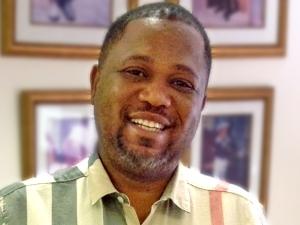
With up to 180 funerals taking place during a weekend in Soweto, grieving family members and friends often find themselves struggling to find the right service. However, thanks to technology and the proliferation of smart devices, that may be a thing of the past.
A Johannesburg resident has come up with a system that relies on quick response (QR) codes to help the bereaved find the right funeral service and create an online legacy of their loved ones.
Lebohang Khitsane, of Meyersdal in Johannesburg south, says the innovation, which he hopes will change the face of the funeral industry in SA, was prompted by the ongoing problem of people finding themselves lost or attending the wrong funeral service.
Mass need
"In Soweto, you can have about 120 to 180 funerals over a weekend. In the past nine years, we have encountered numerous problems with regards to families struggling to locate the gravesite of their loved ones.
"We have also noticed at funerals, programmes are hardly sufficient to accommodate everyone in attendance. [So we decided to] come up with a viable solution that will add value to our clients, funeral undertakers and mourners."
A QR code embedded with GPS co-ordinates, says Khitsane - founder of Bataung Memorial Tombstones - will ensure "nobody ever gets lost again".
QR codes are barcodes that can be scanned using smartphones or tablets. An app that allows you to scan the code can be installed free of charge. Once the QR code is scanned, it takes the user to a Web site URL, displays information or opens up a contact card that can be saved.
Khitsane's product - BMT Legacy Cloud - was officially launched on Thursday in Sandton and is positioned as a first of its kind by Khitsane.
World Wide Worx MD Arthur Goldstuck says Khitsane's QR code solution is a good user case for QR codes, and is encouraging in that it has been developed in response to a real world need, rather than (which he says is mostly the case) developers "trying to show how clever they are".
In terms of uptake, Goldstuck says the ability to use QR code is pervasive and, with BlackBerry in particular being popular in townships, a large number of people will probably have access to Khitsane's Legacy Cloud.
"The problem is you still have to download a QR code app and a lot of people are still hesitant to download an app and would rather use the functions their phone comes out with. It will have some traction, but a more straight-forward mapping application might also be a solution."
Goldstuck notes there were 14.3 million smartphones in use in SA at the end of June. "So, even conservatively, you could say about one in four South African adults has a smartphone - considering some of that number will be made up by kids in more affluent households."
How it works
Khitsane explains: "The process begins at the church, where a QR code will be put up on the door for people to scan. As they scan it, they get a programme and access to send the family messages of condolences. They also get directions to the graveyard."
He says the QR system can also be extended to a service that essentially creates an online legacy for families' generations to come. "With the same QR code we can set up a family site that includes all other burials, wherever they may be, and a family tree that can be passed from generation to generation.
"Our children go to private schools, but many don't know their clan creed. There is usually that one aunt who knows it well, but what if she is to die or lose her memory?"
A QR code is also placed on the tombstone - at the family's cost - which allows family members and friends to visit the grave site at any stage after the funeral service to pay respects, says Khitsane.
He says the product has been in development for some time. "Having been in the funeral industry for nine years now, we have done research and finally come up with this product that we believe really changes the funeral industry. We have also filed for a patent [of BMT Legacy Cloud]."
Legacy Cloud costs anywhere between R800 to R8 000, depending on the amount and extent of services families wish to include, says Khitsane. "If a client buys a presidential or tailor-made tombstone then the QR service is free."
International models
About a year ago, a British entrepreneur launched a similar system, prompted by a previous US case and the desire to know more about the people beyond the gravestone.
According to Techworld, the UK resident and funeral director introduced QR codes to tombstones that, when scanned, launch a Web site dedicated to the deceased featuring photographs, videos and tributes from loved ones.
"The £300 QR codes are etched on to small granite or metal squares, before being embedded or glued on to the gravestones."
The QR codes were also developed with memorials and tribute plaques on benches in mind.
"It's a simple way of putting more into a memorial than just a few words on a headstone," the funeral parlour told BBC News. "Cemeteries are very sacred places - the codes are very small and don't impose on the headstones too much."